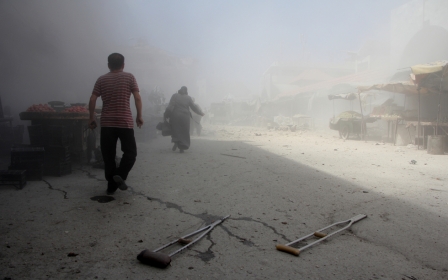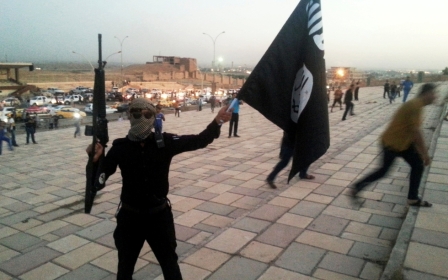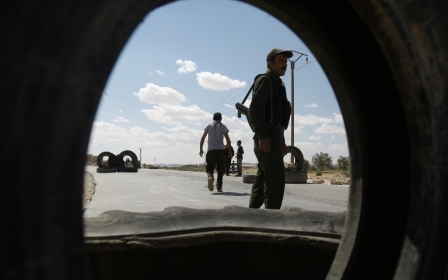Russia questions move to extend UN Syria gas attacks probe
Russia on Wednesday expressed reservations about a US proposal to extend a UN investigation of chemical weapons use in Syria for a year after the panel blamed Damascus's forces for three gas attacks.
The UN Security Council is to discuss on Thursday a US-drafted measure that would allow the mandate of the joint panel of the United Nations and the Organization for the Prohibition of Chemical Weapons (OPCW) to continue for a year.
Russian Ambassador Vitaly Churkin said he wanted a "serious discussion" about the fate of the panel and that the mandate should not be rolled over as a technicality.
"We believe that the scope of this mechanism and the value of their product is questionable, with all due respect to the very hard work they have been doing," Churkin told reporters.
"There needs to be a serious discussion. A quick technical rollover is not going to work."
The draft resolution obtained by AFP notes that the OPCW is investigating new allegations of chemical weapons use in Syria and states that those responsible for such attacks must be held accountable.
The OPCW investigates alleged chemical attacks, but its mandate does not allow it to determine who is responsible for the use.
The Security Council agreed to set up the so-called joint investigative mechanism (JIM) in August 2015 to determine who was behind a series of alleged chemical attacks on Syrian villages in 2014 and 2015.
The panel concluded in its last two reports that Syrian government forces had carried out three attacks using toxic gases, most likely chlorine, and that the Islamic State group had used mustard gas as a weapon.
It was the first time that an authoritative probe had pointed the finger of blame at President Bashar al-Assad's forces after years of denial from Damascus.
France and Britain are calling for UN sanctions against Syria, but Russia said the findings were not conclusive enough to trigger such punitive measures.
Chlorine use as a weapon is banned under the Chemical Weapons Convention, which Syria joined in 2013.
Stay informed with MEE's newsletters
Sign up to get the latest alerts, insights and analysis, starting with Turkey Unpacked
Middle East Eye delivers independent and unrivalled coverage and analysis of the Middle East, North Africa and beyond. To learn more about republishing this content and the associated fees, please fill out this form. More about MEE can be found here.




